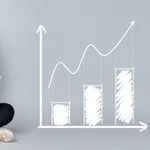What Is Really Going On With The Economy?
Posted on 05 December, 2022 by MIRANDA BOTTAS in Finance

The global economy and general state of financial affairs within the US has been a wild ride in 2022. Let's take a look at what's happened, what's been happening lately, and what might be in store for 2023.
Update: As of Ferbruary 2025, this article is still informational, and covers themes that are important to our business and our readers. The economy continues to shift in various ways, the stock market has hit multiple record highs in the last 12 months, and we now have a new president in office. Regardless, we urge you to stay tuned to our latest posts for the most up-to-date info and analysis.
Mixed Messages, Missing Metrics, and Many Misunderstandings
When we think of how to best describe what's going on with the US financial system recently, it's quite difficult to know where to begin. The last 36 months began with a pandemic that sent almost everything into an economic black hole. During that initial shock, everything came to a screeching halt. What's extremely interesting is that everything "financial" began to split in their separate directions like we'd never seen before - and in a way we really weren't able to analyze until afterward.
First of all, before the border closings, before the mask mandates and before the stay-at-home orders began in 2020, the dollar had surged to an all-time high. It then began dropping down ever-so-slightly in early to mid-May and throughout June but remained at historically high numbers throughout the end of September. The stock market, after dropping a bit from what seemed to be uncertainty over Covid-19 literally exploded upward at almost the exact same time that the pandemic crossed into the US, contrary to what anyone would imagine happening during the reality of a global virus hitting home. While the dollar and the stock market were flourishing like never before, unemployment records were hitting massive highs and continually broke records week after week. This continued on a very consistent but slow rise. Government spending was unprecedented, and the housing market interest rates hit never-before-seen lows.
So how can the world's go-to currency and nearly all of Wall Street be at its best when the future was screaming with uncertainty and instability? The correct answer is anyone's guess.
During roughly the same period, credit card spending spiked like never before. However, by the end of the year average credit card balances hit an overall low as government assistance allowed many people to pay down their debts significantly, despite being underemployed or unemployed. Around the same time, it became extremely clear that many businesses who assumed they were only closing temporarily would never be opening their doors again.
While some businesses were doing better than ever, the hospitality industry, travel, restaurants, bars, and other similar services had hit rock bottom. It was both a confusing and frustrating time for everyone.
Once consumers realized this wasn't going to be a quick and temporary, a recession of sorts began. While people were more cautious about how and where they spent their money, they continued spending and Wall Street continued performing very well for the next year until around December of 2021 when things took a turn. As the stock market began to turn bearish, the housing market had already been ramping up for months, and real estate was on a roll. Buyers were fighting to pay top-dollar and homes were often selling before officially hitting the market; and at values much higher than market value. Mortgage rates that had previously remained low through the beginning of 2021 began to wobble slowly into what we now see as the fastest and largest increase of mortgage interest rates ever recorded, nearly doubling in less than 12 months. Home buying quickly slowed, and at the same time the stock markets went from bearish to bullish, correcting almost overnight despite continually dropping and seeming like they were heading for collapse.
As all of this was occurring, many other problems popped up randomly causing even more chaos. Many consumer goods including food prices suffered increases due to shortages of labor and materials fueled by lockdowns and the inability of manufacturers to meet production needs. These shortages ranged from logistics issues to the temporary shutdown of factories during internal Covid-19 outbreaks. China, as a main producer of many core materials, ingredients, and parts that fuel the global economy had a hard time keeping up with demands which was only exasperated by major supply chain problems that leaked and overlapped into various industries. Problems at major ports left ships waiting at sea for more than a month in some cases. Random spikes in prices began to turn into generalized inflation, which was only labeled as such less than a year ago, and is officially going strong today.
Earlier this year, the world's best analysts and experts predicted that inflation would curb if not end before Q3 of 2022. These ideas were presumably made based on the Federal Reserve's decision to raise interest rates in an effort to end inflation, however, in many aspects it proved to actually be inflammatory to the situation. One day we hear that the economy is booming, but at the same time consumer sentiment is lower than ever and the dollar is dropping in value. Gas prices peaked to record highs after political issues in Ukraine began, and while many Americans may seem well at the surface it feels like everyone is struggling to regain their footing.
It's almost as if nobody knows what to expect, and we're still in shock after everything we've been through in the last two years. The social and financial anxieties over the last 36 months seem to have done a number on consumer confidence, even if the official numbers are begging us to perceive things as otherwise.
The extreme variation in numbers, predictions, promises, results, and the added surprises are just too much for most of us to process. While life goes on and we're trying our best, the underlying story seems to be completely incomprehensible.
While one expert says we should have no fear, other say brace for the worst. While weekly applications for unemployment have dropped, the manner in which true unemployment is calculated doesn't seem logical during an illogical economy. While many were prepared to end this year by selling their home for a great profit or buying at a lower cost, neither of these really came to fruition for the vast majority. The numbers of gains, losses, and everything in between is even further skewed by the fact that niches which fall within certain industries thrive and others fell flat long ago.
Maybe it's survival of the fittest, or maybe it's just that nobody was truly ready for all of this and we're looking directly into the eye of the aftermath of unpreparedness. Maybe it's something deeper, or simply just something that's not worth explaining due to the complexity and importance of focusing our resources to productive means rather than waste valuable time contemplating over what's already behind us. Maybe the only thing to do is concentrate our focus toward the future without looking back.
It's Now December 2022, And Everything Is Sitting On The Fence
When we take a hard look at what's happened in the last 2.5 years, it's not only difficult to comprehend, but surely this global pandemic was a root cause and there's nothing that can be done about it. Restrictions on travel and/or stricter regulations have not only touched the individual, but also the fashion in which businesses operate and reach weary, skeptical, and worn-down consumers.

With a war going on, a less-than-confident public, and a Zero-Covid policy in China, many resources remain scarce at best and some are simply unattainable. The Fed has just recently announced that interest rate hikes would be less intense in the coming months, but inflation is still kicking hard and definitely doesn't seem transitory as many claimed. Are things begin to balance out or our they slowing like a spinning top that's just waiting to lose all momentum and flop onto its side while making a few small circles before a complete halt? Can anyone be sure? This is a very common and serious question that's also extremely difficult to predict with any certainty, let alone provide a solid answer.
Will people spend this Christmas? Will stores see good sales numbers or will it be a flop? Will the FED manage to bring down inflation slowly but surely as they've repeatedly stated, or will their spending only add fuel to the fire? Surely, the creation of debt is not the best fashion to reduce rising prices, but sometimes the extraordinary is called for during extraordinary circumstances. Is it the best time to buy a home despite sky-high mortgage rates or should you attempt to wait things out? Is there any guarantee that waiting things out will prove to be a smart move? Absolutely not, nor does buying now guarantee you'll be making the best move since things can change on a dime and interest rates may fall back by 30% in the next 2 months.
The problem we face is that we're only able to use our best judgement at this point. Rather than basing it on expert predictions, intent, suppositions, and similar aspects of which none are foolproof, we may be doing ourselves a favor by going with what experience has taught us in the last few years - nothing is set in stone.
The name of the game seems to be to just roll with the punches. If you're going to buy a home, buy it. If you're planning to change careers or open a new business, why wait? If you've wanted to move overseas but are waiting for things to calm down first, are you really doing yourself a favor? Why wait? Do it. Get it done and therefore be done with it. Buy the car. Sell the house. Liquefy the assets. Invest in the market. Invest in tangibles. Retire. Take the job anyway. Don't cancel the vacation. Don't retire just yet. Don't invest in anything. Whatever you were planning, stick with it because there's no telling what tomorrow will bring and there's a zero percent chance that you have any control over it.
The One Thing You Can Control
The name of the game seems to be to just roll with the punches. If you're going to buy a home, buy it. If you're planning to change careers or open a new business, why wait? If you've wanted to move overseas but are waiting for things to calm down first, are you really doing yourself a favor? Why wait? Do it. Get it done and therefore be done with it. Buy the car. Sell the house. Liquefy the assets. Invest in the market. Invest in tangibles. Retire. Take the job anyway. Don't cancel the vacation. Don't retire just yet. Don't invest in anything. Whatever you were planning, stick with it because there's no telling what tomorrow will bring and there's a zero percent chance that you have any control over it.

The only thing you can control is your decisions. One of those decisions is how you chose to live and how your future will unfold based on the decisions you make today. If you decide to throw in the towel early and enjoy the life you have with the resources you currently have, there's nothing wrong with that. And if you decide to keep pushing forward to meet hard-earned goals it's completely justifiable.
If you have the will, there's always a way. This is even more true with people who are motivated and less-disturbed by external happenings. For example, if you're on the market to buy a home you may be hearing from friends and family that now's not a good time. They may be correct or they may be wrong, but at the end of the day, it's your decision. If your decision is true to your original goals, you'll make the best of the tools you have and power forward through the muck. There are also tools at your disposal to help you gain a financial edge during times like this. One of these tools is your credit score. If you've maintained it well, use it to your advantage. Furthermore, exploit it by capitalizing on authorized user tradelines. If you don't know what they are, they're worth looking into. You can easily find tradelines for sale and improve your already good credit score to make things fall even more in your favor during these hard times when you're determined keep your momentum.
Whatever you decide to believe, whatever you may do, we're all in the same boat. But when that boat is close to the beach, most will wait for the captain to dock. Others, however, when impatient or running late with their plans, or simply due to their nature - will jump out and swim to shore. It depends how deep the water is, how strong you feel, and how good determined you are to reach dry ground as quickly as you can.
It doesn't take a genius to admit that whatever is going on with our economy looks like an impossible jigsaw puzzle. However, you don't have to be a super-human to take a step away and see that the time for puzzles and games is over.... It's time to get to work on our goals, and to do it without looking back.

PREVIOUS ARTICLE
Tradelines For Sale: Preparing For 2023
NEXT ARTICLE
The 3 Biggest Myths About Tradelines
